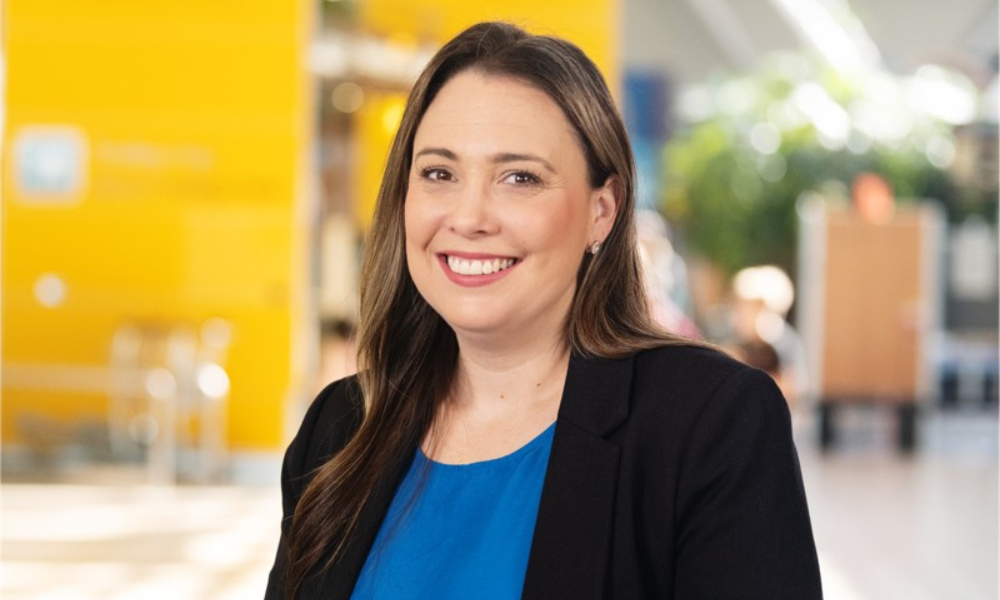
'For us to survive as an organization, that we needed incredibly strong and consistent leadership,' says HR leader

Helping to steer Brisbane Airport through unprecedented times following the Covid outbreak meant Jane Dionysius’ role as HR leader was all the more challenging.
Following domestic and international border closures, the operation went from having 50,000 passengers passing through the domestic terminal a day, to as few as 200. As a result, the HR role took on an unexpectedly long-term pivot.
“We were basically in crisis mode,” says Dionysius, executive general manager HR, who recently spoke with HRD Australia. “Every day for about two years, we had crisis management meetings, and it was a response focus.”
It was not only a challenge for the business to remain viable but also to keep up with government changes to border restrictions and isolation requirements, she says.
“We’ve found this year coming out of Covid, particularly for the HR team, has seen a shift from a very reactionary 24-hour focus of ‘How do we respond?’ ‘How do we keep those employees?’ back to what we call normal HR, so back to our cycle, and really focusing on those strategic programmes that matter.”
Dionysius says she appreciated working with a CEO who fundamentally believed culture is the number one responsibility. From that regard, HR was always given a voice at the C-suite table.
The key to achieving that level of receptiveness in providing proactive strategic advice is to absolutely know the business, she says, in a video interview with HRD.
“You need to really understand what a day-to-day operation looks like and what the challenges are.”
That means Dionysius and her team spending time out in the business understanding what employees deal with day-to-day, including those working shifts.
“I find by having that knowledge when you're at the executive table making recommendations - because everybody around that table knows that you actually understand the business and you understand the impacts of what you're suggesting - you avoid a lot of conversations around ‘That won’t work’, or ‘You don't understand’.”
Having strong corporate values has helped guide Dionysius and her team through such tough times and significant change management.
“I think the biggest learning I've had through Covid, from an HR point of view, was that we had to make a lot of decisions where there were no precedents, there was no prior history. We just had to make decisions on the fly and do what we thought was best.
“And it was there we really used our values. We're very strong in the values of Brisbane Airport, and they are Collaboration, Communication, Courage and Care. We used those as the test case for every decision we made. And that really held us in good stead because we didn't always get decisions right, and some days, we’d make a decision, and by the next day, that decision was out of date. But we can look back and honestly say that every decision we made was in line with our values. And that's probably the thing I'm most proud of with the team and how we responded.”
Despite the upheaval Covid caused, one key aspect Dionysius and her team managed to maintain was keeping leadership training alive. The latest engagement surveys show this has paid dividends, with leadership engagement having improved by nearly 15 per cent.
“We knew for us to survive as an organization, that we needed incredibly strong and consistent leadership. And what we found was we actually used the real-life scenario of operational crisis change management that we were living daily through Covid as a real leadership learning experience. We’ve actually come out of Covid stronger.”
Dionysius and her team have also launched a new learning and development programme incorporating the successful strategy of real life scenarios.
A goal is to ensure Brisbane Airport remains competitive as an employer, and that the brand remains strong – as a stable, secure place to have a career, she says.
The programme includes an ongoing emphasis on continuous training for leaders. It also incorporates a programme called Elevate that focuses on professional and technical development to provide pathways for those who aren’t necessarily interested in people leadership roles but still want to grow and advance their careers.
The other component is the organisation’s ‘Altitude Programme’ for potential high performers, which involves an intensive five-week development activity.
“I would argue that in every stage in your career, you need to have a mentor, and you need to have a sponsor - and they're different,” says Dionysius.
“For me, a mentor is someone that you can go to when you have problems. When you have an idea or concept and you need support. A sponsor, on the other hand, is someone you go to with your wins. A person that you know, who will promote and push you forward.
“It’s important that you have both - and they play different roles.”